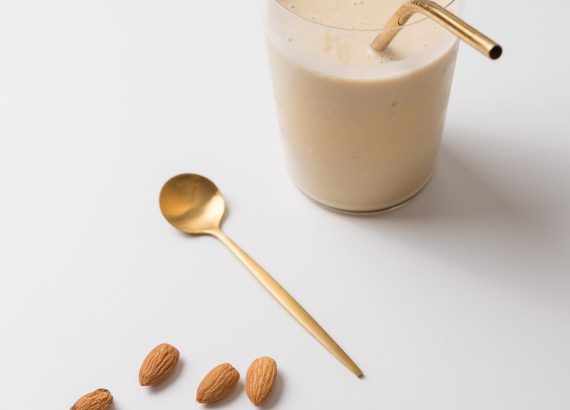Coffee Myths Debunked: 6 Separating Facts from Fiction

Ah, coffee! It’s the drink that fuels most of our mornings, keeps us going through the day, and is a staple in our lives.
Not only is it a delicious beverage, but it’s also steeped in tradition and history. Unfortunately, with any beloved topic comes myths and rumours.
Today, let’s talk about some of the most common coffee myths and debunk them once and for all. Let’s find out what’s fact and what’s fiction.
Page Contents
Myth #1: Coffee stunts your growth
This is probably one of the most common coffee myths that’s still doing the rounds. But, the truth is, there’s absolutely no scientific evidence to suggest that coffee has any impact on a person’s height or development.
However, what coffee does contain is caffeine, which can cause sleep interference and restlessness which may adversely affect children. The effects are temporary, and as far as growth is concerned, coffee has no impact.
Myth #2: Coffee dehydrates you
Another myth that’s been doing the rounds for a long time is that coffee can dehydrate you. This myth simply isn’t true, and the reason why is that coffee does contain water.
In fact, a study by the American Physiological Society found that coffee doesn’t dehydrate athletes. And, as long as you’re drinking water alongside coffee, it shouldn’t have any adverse effects on your hydration levels.
For every cup of coffee you drink, you must drink an extra glass of water to counteract the dehydrating effects of caffeine. As debunked in Myth #2, coffee does not dehydrate you. In fact, coffee actually contributes to your daily fluid intake.
However, while it’s not necessary to drink extra water for every cup of coffee, it’s always beneficial to stay well-hydrated. So, keep drinking your water as you normally would, but don’t feel compelled to increase your intake solely because of coffee consumption.
Myth #3: Dark roasted coffee has more caffeine
One of the biggest myths that many coffee lovers believe is that the darker the roast, the more caffeine there is in the coffee. But, in reality, the opposite is true.
The longer the coffee is roasted, the more caffeine burns off, which means darker-roasted coffee has less caffeine. This doesn’t mean you won’t get a good energy boost from a dark roast, as the roasting process can concentrate the flavours, making it taste stronger.

A common misconception is that a shot of Ristretto, known for its intense and concentrated flavor, contains more caffeine than a regular shot of espresso. However, this is not necessarily true.
Ristretto, meaning ‘restricted’ in Italian, is made by using the same amount of coffee but half the amount of water compared to a standard espresso shot. Consequently, the brewing process is shorter and less caffeine is extracted.
Thus, despite its robust flavor, Ristretto actually contains less caffeine than a regular shot of espresso. It’s another reminder that the taste intensity of coffee doesn’t necessarily correlate with its caffeine content.
Myth #4: Coffee is addictive
Since many people drink coffee daily, they believe that it’s addictive, and they might even depend on it for feeling good or staying awake. Although, the truth is that caffeine does stimulate the central nervous system, and it does activate some of the same neural pathways that are involved in addiction.
However, the level of caffeine that most people consume isn’t enough to result in true addiction. Withdrawal symptoms occur when you reduce or quit the consumption of caffeine, and they usually include headaches, drowsiness, and irritability.
Myth #5: Coffee leads to heart disease
This myth likely stems from the thought that coffee can raise your blood pressure levels. But, when it comes to heart disease and coffee, the narrative is a little different.

According to studies published in the Journal of the American Heart Association, moderate coffee intake may actually be good for your heart. Drinking coffee has been shown to reduce the risk of various health conditions such as heart disease, type-2 diabetes, and oral cancer.
Myth #6: Coffee is bad for your health
Contrary to popular belief, coffee is not inherently harmful.
While excessive consumption may lead to certain health issues like sleep disturbances or heart palpitations, moderate and controlled intake does not pose a significant health risk. In fact, coffee contains numerous antioxidants and nutrients, including riboflavin (vitamin B2), pantothenic acid (vitamin B5), manganese, potassium, magnesium, and niacin.
What’s more, research suggests that coffee drinkers may have a lower risk of certain diseases, including Alzheimer’s and Parkinson’s. However, it is essential to remember that everyone’s tolerance to caffeine is different, and as with all things in life, moderation is key.
Conclusion
And, there you have it: five coffee myths that we’ve debunked once and for all. Coffee is a delicious, satisfying, and healthy drink when consumed in moderation.
While caffeine does have its share of stimulating effects, there are no documented cases of individuals experiencing true addiction. Learning the facts and fiction about coffee helps us to enjoy the beverage without worry. Keep on drinking that Joe, coffee lovers!






No Comments